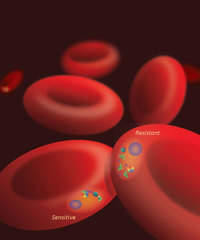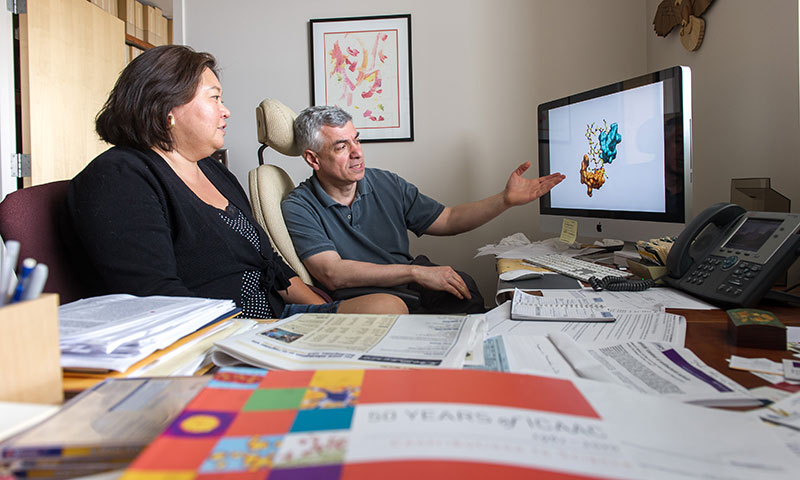New finding offers hope for diabetic wound healing

University of Notre Dame researchers have discovered a compound that accelerates diabetic wound healing, which may open the door to new treatment strategies.

University of Notre Dame researchers have discovered a compound that accelerates diabetic wound healing, which may open the door to new treatment strategies.
Faculty researchers with an interest in the drug discovery process from across the University are invited to apply to spend a period of at least two to three months embedded within the chemistry program at Eli Lilly & Co. in Indianapolis, Indiana.
…
The Warren Family Research Center for Drug Discovery and Development at the University of Notre Dame has established a research collaboration with Retrophin, Inc. and the Grace Wilsey Foundation to focus on developing treatment…
Robert V. Stahelin, Ph. D., associate professor of biochemistry and molecular biology at Indiana University School of Medicine-South…
WFRCDD Investigators and Professors of Chemistry & Biochemistry Paul Helquist and Olaf Wiest have been awarded a $100,000 grant from the Ara…

June is Alzheimer’s and Brain Awareness Month, which seemed a particularly apt time to talk with Rich Taylor, a University of Notre Dame researcher whose research focuses on the discovery and development of new therapeutic leads for the treatment of unmet clinical needs in a number of diseases, including Alzheimer’s. Taylor is associate vice president for research, professor of chemistry and biochemistry and interim director of the Warren Family Research Center for Drug Discovery and Development.
The Community forOpen Antimicrobial Drug Discovery (CO-ADD)…

Rich Taylor, a member of the University of Notre Dame faculty since 1995, is a professor of chemistry and biochemistry in the College of Science. Taylor, who also serves as associate vice president for research at the University, has recently been appointed as interim director of the Warren Family Research Center for Drug Discovery and Development. Read more...
Warren Family Center initiated the creation of an international team of researchers focused on the search for small molecule therapeutics for NGLY1 deficiency in collaboration with the Grace Wilsey Foundation.

University of Notre Dame researchers led an international team to identify a molecular mechanism responsible for making malaria parasites resistant to artemisinins, the leading class of antimalarial drugs.
According to the World Health Organization’s 2014 World Malaria Report, there are an estimated 198 million cases of malaria worldwide with 3.3 billion people at risk for contracting the infection. Although the impact of malaria is still significant, the statistics reflect a considerable reduction in the global malaria burden. Since 2010, disease transmission has been reduced by 30 percent and mortality due to malaria has decreased by almost half.
Warren Family Center hosted a visitors from Novartis Pharmaceutical Corporation including Susan Giacalone (Area Scientific Associate Director- Field Medical MSL, Rare Diseases), Julio Fernandez (Field Medical National Director, Rare Diseases), John Murry, (Regional Scientific Director), Beth Ostergard…
Warren Family Center hosted a visit from Eli Lilly President and CEO, Dr. John Lechleiter and Senior Director, Dr. Jay McGill.

Warren Family Center researcher Paul Helquist attends the Grace Wilsey Foundation’s Inaugural Scientific Conference.

Estimates of deaths from methicillin-resistant Staphylococcus aureus (MRSA) in the United States range upwards of 19,000 annually. Around 1960, when Staphylococcus aureus developed resistance to first-generation penicillin, methicillin and other second-generation beta-lactam antibiotics were adopted to fight the illness. The modern variants of the bacterium have developed resistance to the four drugs now used to treat it.
A team of researchers led by Shahriar Mobashery and Mayland Chang at the University of Notre Dame has discovered a promising new antibiotic, a vital weapon against disease as pathogens evolve to develop resistance to long-used drugs.